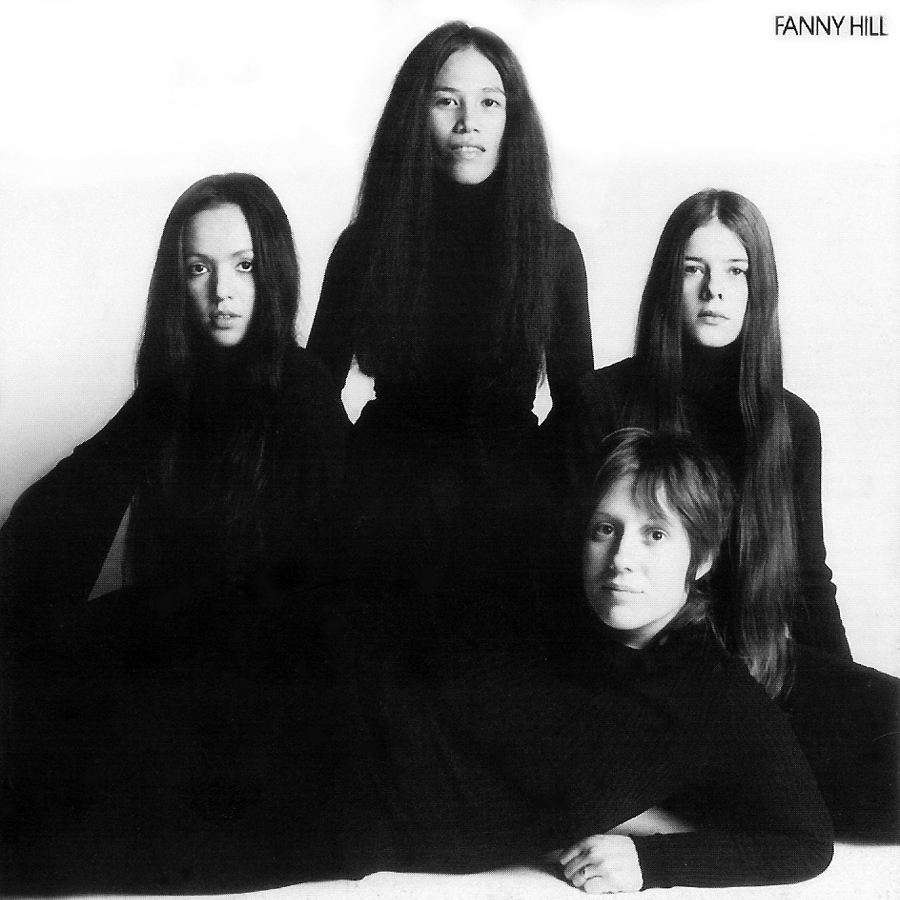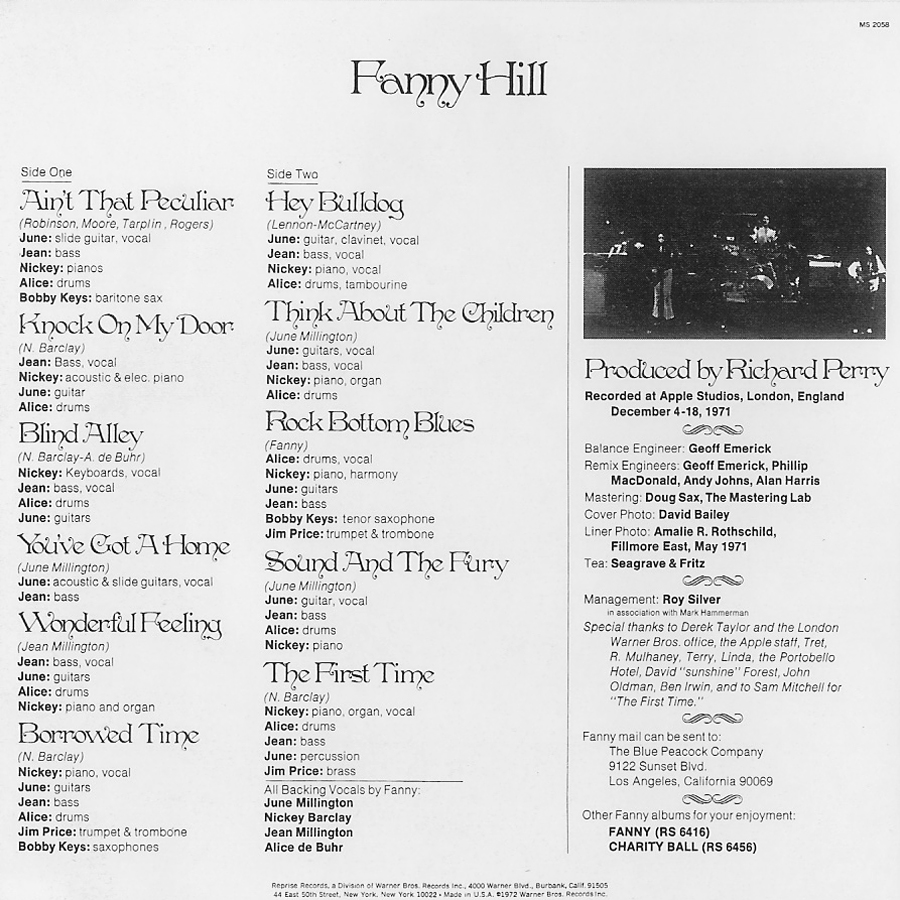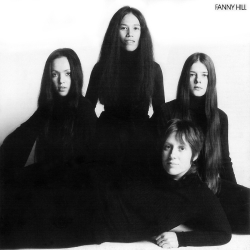“Fanny Hill” was the anticipated follow up to 1971’s “Charity Ball” release. Recorded at Apple Studios, London, England in late 1971, the album features producer Richard Perry’s best work with the band, even though Fanny was not thrilled with some of his additions (like brass and strings to some of the songs). Several of the songs on the album had the potential to become successful single releases for the band, but again, the marketing of the band fell flat, as radio station program managers were still not accepting the band’s music. “Fanny Hill” features a wide range of song styles from rockers to ballads, plus it’s lyrical content touched on topics that would not become center stage in the world for decades to follow.
The single “Ain’t That Peculiar” would top the singles chart at #85 on Billboard’s Hot 100. The album, released on April Fool’s Day in 1972, would top out at #135 after 6 weeks of being on Billboard’s Hot 200 Album chart. This was Fanny’s highest ranking album on the Reprise label.
Fanny Hill
Released: April 1st, 1972
Reprise MS2058
Producer: Richard Perry
Ain’t That Peculiar? (W. Robinson, W. Moore, M. Tarplin, R. Rogers)
Fanny Hill boasts two of Fanny’s finest covers and this is one of them. June’s powerfully distinctive slide guitar lends a real sense of authority to this re-worked version of Marvin Gaye’s Motown hit. Bass and drums are solid as a rock and June’s idiosyncratic vocal is the final brick to making this a killer cover.
Knock on My Door (Nickey Barclay)
The first of only two occasions when Jean takes the lead vocal on one of Nickey’s songs. This classic other-woman ballad has a vaguely Baroque feel to it with its key-shift chorus and string backing and as a result feels strikingly different to the majority of Fanny’s other work.
Blind Alley (Nickey Barclay, Alice de Buhr)
Another pounding rocker from Nickey set against Alice’s tumbling-down-stairs drum patterns and June’s power chords. The hardest rocker on the album with a typically tough lyric. (See video in Gallery for live rendition of this song.)
You’ve Got a Home (June Millington)
A gentle and wistful ballad utilizing only June’s acoustic and slide guitars and sister Jean’s bass. The type of social awareness contained in the lyric was a rarity in 1972 but adds real emotional punch to a hugely evocative song.
Wonderful Feeling (Jean Millington)
Arguably Jean’s best song, this mid tempo rocker has a well-crafted melody with a harmony laden, soaring chorus and is sympathetically arranged by the band.
Borrowed Time (Nickey Barclay)
Another classic rocker from the pen of Nickey, augmented this time by a brass backing arrangement and featuring some gutsy rock ‘n’ roll guitar from June.
Hey Bulldog (John Lennon, Paul McCartney)
Fanny out-Beatles the Beatles with this storming version of one of John Lennon’s most uncharacteristic songs. Jean’s rumbling bass sets the scene as Alice’s Ringo-like drumming provides an unstoppable juggernaut of a groove while June improves upon Harrison’s original solo with gusto plus some extra lyrics from Nickey make this possibly their best cover, but then look at the source material!
Think About the Children (June Millington)
A shimmering eco-ballad carried by June’s exceptional wah-wah playing and earnest vocal. The guitar solo is well crafted and evokes the memory of Hendrix at his most mellow. One of June’s finest efforts.
Rock Bottom Blues (Nickey Barclay, June Millington, Jean Millington, Alice de Buhr)
Alice’s Ringo moment. She really gets to grips with the vocal line on this mid tempo rocker; the only band credited song in the canon, and relishes its story of hardship and rejection – complete with muttered obscenity. A cult classic!
Sound and the Fury (June Millington)
Fanny does Country with this appealing ballad from June. Her own slide playing and Nickey’s tinkling piano add the appropriate ambiance.
The First Time (Nickey Barclay)
A typically big ballad from Nickey to finish what is generally considered to be Fanny’s finest album. The whole thing has a bluesy feel augmented with Alice’s huge drum sound and occasional Latin American brass arrangements which all builds to a stunningly intense finale where June’s irresistibly rising guitar line wails into the fade.



